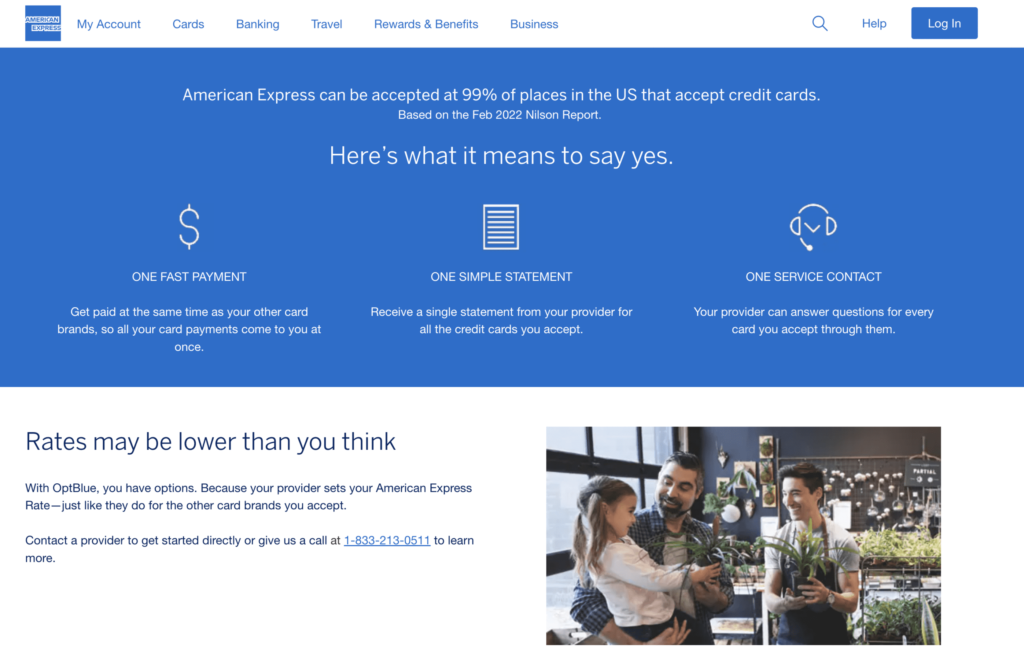“What are the average credit card processing fees I should be paying?”
This is the most common question we tend to get asked at Merchant Cost Consulting when merchants are trying to lower their credit card processing fees. Unfortunately, there is no easy answer and it typically involves various moving parts.
Many factors include the types of credit cards you accept, how you actually accept the credit cards from customers, and the credit card processing mark up that a credit card processor will charge you. All of these, among others, play a vital role in the average credit card processing fees your business will be charged on a monthly basis.
The point of this blog is to educate you on what these factors are and give you a rough ballpark of what your average credit card processing fees should be.
Average Credit Card Processing Fees Explained
The quick answer: the average credit card processing fee cost for card-present transactions ranges from 1.70% – 2.05% for Visa, Mastercard and Discover. Amex fees are slightly higher.
The average credit card fee cost for card-not-present transactions ranges from 2.25% – 2.50%. Again, these credit card merchant rates can vary depending on numerous factors and should not be literal numbers for you to go by, but rather an estimate.
Average American Express Fees For Merchants
As majority of business owners are aware, Amex tends to be their own monster in this industry and you will typically pay more compared to the other three major card brands.
Amex has a unique credit card processing pricing structure called OptBlue. This new model does offer the possibility of lower credit card processing fees but depends on the pricing negotiated with your current merchant services company and how you accept credit card payments.
You can read our guide to Amex OptBlue to get a better understanding of the pricing structure and how to negotiate your credit card processing fees with your current merchant service company.
When dealing with OptBlue and your current payment processor, you will want to be careful. The majority of credit card processing companies try and use this as a money grab and claim the service markup (revenue the credit card processor makes) needs to be much more than the other card brands (this is not true).
To give an average credit card processing fee for Amex is difficult because of the different American express credit cards your customers may have. Each credit card has a different rewards program associated with it which will dictate the interchange fee that is passed along to your business. In addition to the interchange fee, you will also be charged the service markup that was pre negotiated with your current payment processor. Check out our complete breakdown of Amex interchange fees for more information.
A good test to see your average credit card processing fees with Amex is to figure out exactly what you are paying for the other card brands.
If it is significantly more, then something is most likely incorrect. If you would like to have one of our payments expert takes a look, you can submit your statement to our analyzer.
Average Credit Card Processing Rates of Other Card Networks
At the card network level, the average processing fee is about 1.95% of the total transaction value. For specific rates, use the following resources:
We update these pages on a regular basis to keep pace with the latest fees and changes.
How To Calculate Average Credit Card Processing Fees
This is another question we frequently receive and it is another one that is hard to answer because of how subjective it can be.
The effective credit card processing rate (also known by calculating total fees divided by total volume) does give you a good representation of what your all in costs are. That being said, it does not always give a good representation of if you are priced appropriately.
Example: An auto body shop who is seeing a lot of debit cards and swiping them through a credit card processing terminal would have a much lower cost than an eCommerce shop seeing reward credit cards, even if both merchants were on the same service mark up with the same credit card processing company. These businesses also have a different MCC (merchant category code).
We never would tell someone to just rely on an effective rate to understand what they are paying. It’s better to be accurate and have an idea of the markup the processor is making on your business.
Effective rates can fluctuate pretty heavily based off card types, transaction sizes and volume. For more information, refer to our in-depth guide on how to calculate processing rates.
Processing Methods Can Affect Credit Card Processing Fees
As mentioned earlier, how your business actually is processing the cards has a large impact on your average credit card processing rates.
There really are two general ways to process cards, card-present and card-not-present.
Of course card-present transactions are when the card is physically in the location (this can be EMV, Swiped, Apple pay etc) and Card-Not-Present refers to businesses that are processing cards remotely.
An example of this would be an eComm business type or any type of Mail Order business.
Interchange costs are all affected by how your business is processing cards. The bulk of the time a card-present transaction are going to be cheaper than a card-not-present transaction.
Why Do Interchange Fees Fluctuate?
This variation of higher rates for card-not-present transactions really has to do with risk. Right off the bat, CNP transactions have higher interchange fees and higher processing fees. This holds true for all payment processors and major credit card networks.
The card brands feel taking a card that is not actually present at the business brings much more risk relative to someone presenting the card for payment. Hence the higher costs due to the higher risk factor associated with card-not-present transactions.
Here’s why:
Card-Present Businesses
- Are typically lower risk and receive lower interchange plus markups from processors
- Lower occurrences of chargebacks and fraud that contribute to overall cost
- Interchange fees are roughly 1.65% + $0.10 per transaction
Card-Not-Present Businesses
- Higher risk and pay higher interchange plus markups from processors
- Have higher occurrences of chargebacks and frauds resulting in greater expenses
- Interchange fees are roughly 1.90% + $0.10 per transaction
Additional Reading: The Complete Guide to Interchange Fees and Rates
How Transactions Affect Average Credit Card Processing Fees
Ticket size has a huge impact on a business’s average credit card processing fees. Ticket size is essentially the average cost of transactions you are running at your business.
As the ticket size decreases, the number of transaction fees incurred increases. Since transaction fees have a greater impact on smaller transactions, they have a greater impact on overall cost.
This is the reason why a coffee shop or convenient store will tend to have a higher effective rate than an auto shop. That being said, the coffee shop might actually be on better pricing even though their effective rate is higher.
To give you an example, let’s pretend that two businesses each processing $10,000 in volume.
Business A has an average ticket of $5.00 and Business B has an average ticket of $100.00. This means that Business A will have 2,000 transactions and Business B will have 100 transactions.
For math purposes, let’s assume these two businesses are on the same exact pricing and both paying a $0.20 per transaction fee. Business A would pay $400 in transaction fees while Business B would pay just $20 in transactions fees.
You also need to consider the assessment fee, monthly fees, and other charges imposed by credit card processors to truly calculate your total cost and average. We have a complete guide that walks you through the cheapest way to accept credit card payments, which can really help lower your average cost of payment processing.
Debit Transaction Fees vs. Credit Card Processing Fees
Interchange rates for credit cards are usually six times higher than they are for debit cards.
The reason for this is purely based off risk. Debit card transactions are much easier and safer than credit card transactions. Why?
The funds come directly out of the customer’s linked bank account, transaction approval is simple, as long as there is enough money in the consumer’s account to cover the transaction it will be approved.
Credit card transactions require the card-issuing bank to extend credit to the consumer and then cover the cost. From there, the consumer is responsible to pay the bank for the cost at a later date. In majority of the cases, credit card transactions will be approved as long as the limit on the credit card can cover the cost.
Additional Reading: Credit vs. Debit Transactions – What’s the Difference?
Final Thoughts on Credit Card Processing Fees
Credit card transaction fees are complicated. But by now, we hope you have a good understanding of the different factors that can influence your total processing fees cost.
Calculating your effective rate is a decent ballpark of what you are paying but should not be the only cost you look at.
As mentioned above, the effective rate can vary based on numerous factors and should serve as just a ballpark.
Some other things to take a look at on your statement should be monthly costs, per transactions fees, discount rates and surcharges.
We understand this stuff can be complicated and time consuming. If you want someone to have an unbiased look to see if you are receiving competitive pricing based off all the factors above you can send in your statement or reach out.
Merchant Cost Consulting is not a credit card processing company nor do we look to change your business from your current vendor. We are a team filled of experts in the credit card processing world who help businesses lower their processing costs without changing vendors, equipment or banks.
From there, we have a software that polices the account to ensure the pricing does not fluctuate and there are no mistakes.




